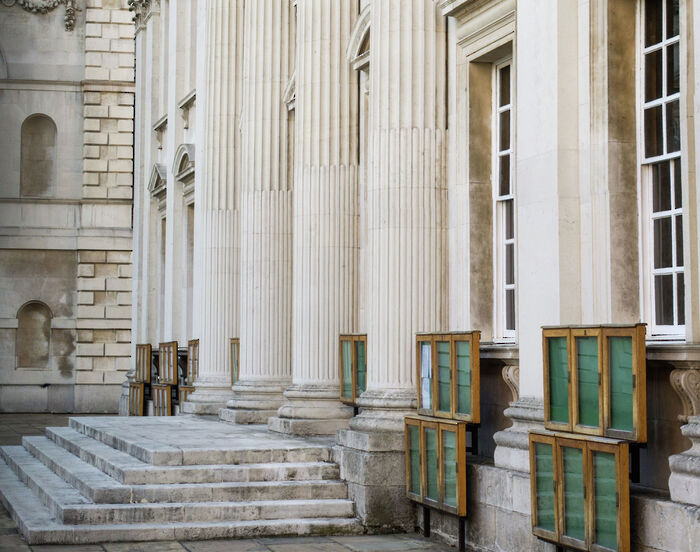Why feminism in Cambridge makes me angry
Nusrath Tapadar argues that the Cambridge feminist bubble needs to look beyond the issues faced by white, middle-class, educated women

Cambridge’s feminist presence is a strong and influential one, being a community clearly committed to female empowerment within and beyond the sphere of the university. However, coming to Cambridge has introduced me to a kind of feminism with very exclusive perspectives, essentially ‘white mainstream feminism’ where the primary focus remains on the issues faced by white, typically middle-class, educated women. This term means absolutely no disrespect to the struggles of those that fall into this category; any example of gender discrimination has absolutely no place in our society and any struggle against it is legitimate.
Yet, it’s a source of discomfort and, quite frankly, irritation that the attention paid to different issues can be so disproportionate. For example, I’ve heard a lot about the gender pay-gap in my time here. Yes, it’s an unrelenting issue within society, but I listen on with longing, for a similar level of thought and conversation surrounding the issues I’ve faced as a young woman.
Feminism here is focused around the concerns of an already relatively liberated class, rather than lifting up women around them who are denied basic rights
Growing up in a traditional, South Asian household, it is the rigid expectations held over women, that make simple aspects of life, like moving out for university or staying late at work, difficult. My ‘feminist struggle’ has centred around the attainment of basic independence and individuality, qualities frowned upon in many cultures but often taken for granted in the Cambridge feminist community. Being from East London, which has a huge South Asian community, I’ve personally witnessed the abusive manner in which so many women are raised. Brought up to believe their destiny is to marry and raise children, many of my own friends and family have been brainwashed into forgetting their value as human beings and denied their basic rights to freedom of thought and expression.
Out of just my closest friends, one was brutally physically abused for most of her life, another was sexually abused by her own grandfather and then victim-shamed, and yet another had to run away from home just to go to university. My friends were silenced by their Bengali cultural backgrounds, but barely liberated by their British ones. It’s therefore a startling but unsurprising statistic that South Asian women are two-three times more likely to commit suicide than their white counterparts: we’re starting off life being twice or thrice more likely to want to end it.
It is an easy temptation to assume that such issues are behind us, but there are still around 15 honour killings in the UK every year. In modern Britain, women are still brutally murdered for supposedly bringing shame upon their families. One woman alone a year would be one woman too many. Even for those lucky enough to escape the horrors of honour killing, more are victims of other forms of abuse: between 2010-2014, there were 11,744 reported incidents involving female genital mutiliation (FGM) and forced marriage in the UK, an appalling statistic that does not even include those taken abroad or unreported abuse. Out of 52 police forces in the UK, 39 have received reports: this is clearly a national issue, and I haven’t heard a single word about the work that needs to be done. FGM and forced marriage were only criminalised in 2003 and 2014: it is shocking that these crimes were only codified so recently, proving that we must work from the ground up to restore to women their rights to safety and security.
Why is there virtually no discussion about this? Why should I feel apprehensive that by voicing my concerns, I’ll come off as an ‘angry woke-bae’? My anger is with the fact that feminism here is focused around the concerns of an already relatively liberated class, rather than lifting up women around them who are denied basic rights. Being members of one of the highest-ranking universities in the world, this is a wake up call I shouldn’t need to provide.
The work of groups such as FLY is, of course, not to be discredited. However, FLY’s relentless dedication to giving women and non-binary individuals of BME backgrounds a safe space, does not eliminate the fact that the world within which these crimes exist is still far removed and underrepresented in the Cambridge feminist bubble, despite it being a daily reality for so many in this country.
It’s easy to distance yourselves from ordeals that feel so far removed from your own. Yes, most are aware that these crimes still occur abroad, but the uncomfortable crossing of the culture line appears to be an impenetrable gloss abetting the abhorrent injustices faced by women for whom protection by British government should be a birthright. Why are these Bengali issues, or Pakistani or Somali issues? Why are they not British issues? Why aren’t more feminists in Cambridge talking about it?
 News / Eight Cambridge researchers awarded €17m in ERC research grants27 December 2025
News / Eight Cambridge researchers awarded €17m in ERC research grants27 December 2025 News / Clare Hall spent over £500k opposing busway 24 December 2025
News / Clare Hall spent over £500k opposing busway 24 December 2025 Comment / League tables do more harm than good26 December 2025
Comment / League tables do more harm than good26 December 2025 News / Caius mourns its tree-mendous loss23 December 2025
News / Caius mourns its tree-mendous loss23 December 2025 Comment / The ‘class’ of Cambridge24 December 2025
Comment / The ‘class’ of Cambridge24 December 2025











